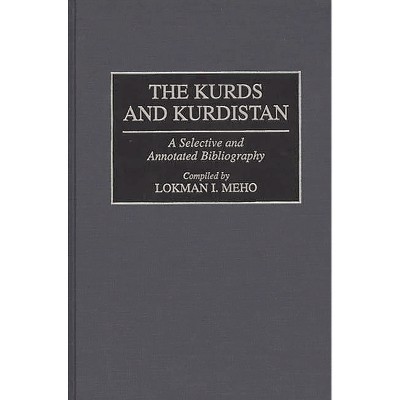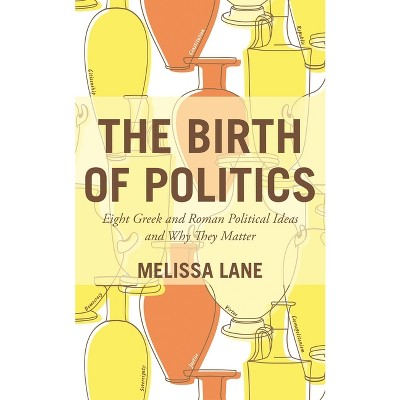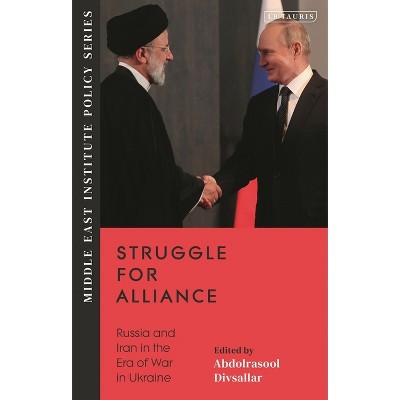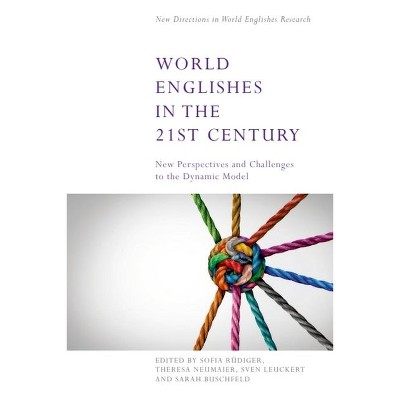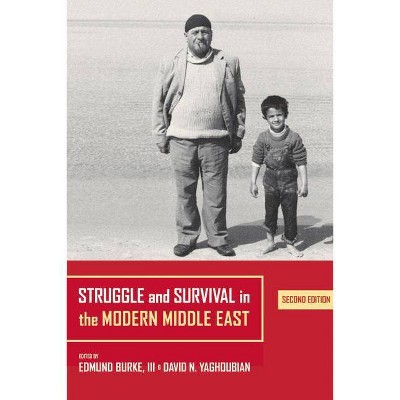Sponsored

The Struggle to Reshape the Middle East in the 21st Century - by Samer S Shehata (Paperback)
In Stock
Sponsored
About this item
Highlights
- The volume examines the causes and consequences of regional turbulence in the Middle East following the 2003 Iraq war and the 2011 Arab uprisings.
- About the Author: Samer S. Shehata is the Colin Mackey and Patricia Molina de Mackey Associate Professor of Middle East Studies at David L. Boren College of International Studies, University of Oklahoma.
- 336 Pages
- Political Science, World
Description
About the Book
The volume examines the causes and consequences of regional turbulence in the Middle East following the 2003 Iraq war and the 2011 Arab uprisings.
Book Synopsis
The volume examines the causes and consequences of regional turbulence in the Middle East following the 2003 Iraq war and the 2011 Arab uprisings. The Middle East has experienced unprecedented levels of instability and violence during this period including regime breakdown, heightened rivalry and competition, civil and proxy wars, cross border military intervention, refugee flows, and the emergence of violent non-state actors. Following a theoretical chapter analysing the drivers of regional turbulence, leading Middle East scholars investigate the impact of turbulence on the politics of different states and actors in the region. Nine case studies analyse the foreign policies and regional role of the United States and Israel, Iran and Turkey's policies toward the Syrian crisis, and the impact of regional turbulence and intervention on Yemen, Egypt, and relations among Arab Gulf states. The two final chapters examine two new Islamist actors that emerged in the Middle East during this period: Sunni militant groups in Iraq and Syria and the new Salafi political parties and their foreign policy orientations.
From the Back Cover
Analyses the causes and consequences of regional turbulence in the Middle East following the 2003 Iraq War and the 2011 Arab uprisings The Middle East has experienced unprecedented levels of instability and violence during the first decades of the 21st century, including regime breakdown, heightened rivalry and competition, civil and proxy wars, cross-border military intervention, refugee flows and the emergence of violent non-state actors. Samer Shehata brings together leading Middle East scholars to investigate the drivers of regional turbulence and its impact on the politics of different states and actors in the region. Nine case studies assess the foreign policies and role of the United States and Israel, Iran and Turkey's policies toward the Syrian crisis, and the impact of regional turbulence and intervention on Yemen, Egypt, and relations among Arab Gulf states. The consequences of regional turbulence on violent non-state actors and on the region's newly emergent Salafi parties are also examined. Based on original interviews, examination of primary documents and research that cuts across the traditional boundaries of domestic, regional and international politics, this volume produces new insights about one of the most turbulent periods in Middle East regional politics. Samer S. Shehata is the Colin Mackey and Patricia Molina de Mackey Associate Professor of Middle East Studies, University of Oklahoma.Review Quotes
Collectively, the chapters give readers a profound understanding of the interests and actions of key players in the Middle East, as they have sought to craft the regional order to their liking. The book provides a crucial backdrop to the major transformations that have occurred since its publication.--Melani Cammett, Harvard University "International Affairs"
This book provides indispensable background to any sensible discussion of how the Middle East will adapt to Israel's war in Gaza and Lebanon and how the United States should adjust to new realities, as well.--Lisa Anderson "Foreign Affairs"
A good book takes one's breath away and this superb volume on the many dimensions of inter-state, intra-state relations, and non-state interactions in the Middle East, is one such volume. Its layered analysis, by some of the most innovative minds in the business, explores every significant 'state theatre' in this region, bringing multitudes of insights together to enable the reader to develop a true multi-dimensional picture of the forces which have been in play since the Arab uprisings. This is the kind of volume that will inform and educate for years to come.
--Anoush Ehteshami, Durham UniversityThis is a book of tremendous importance. Comprising original contributions by a group of stellar scholars, the book presents comprehensive, incisive analyses of the causes and consequences of important transitions underway to international and security arrangements in the Middle East. I strongly recommend the book for anyone interested in better understanding contemporary international relations in the Middle East.
--Mehran Kamrava, Georgetown University QatarAbout the Author
Samer S. Shehata is the Colin Mackey and Patricia Molina de Mackey Associate Professor of Middle East Studies at David L. Boren College of International Studies, University of Oklahoma. He is also the author of Shop Floor Culture and Politics in Egypt (2009) and editor of Islamist Politics in the Middle East: Movements and Change (2012).
Shipping details
Return details
Trending Non-Fiction




